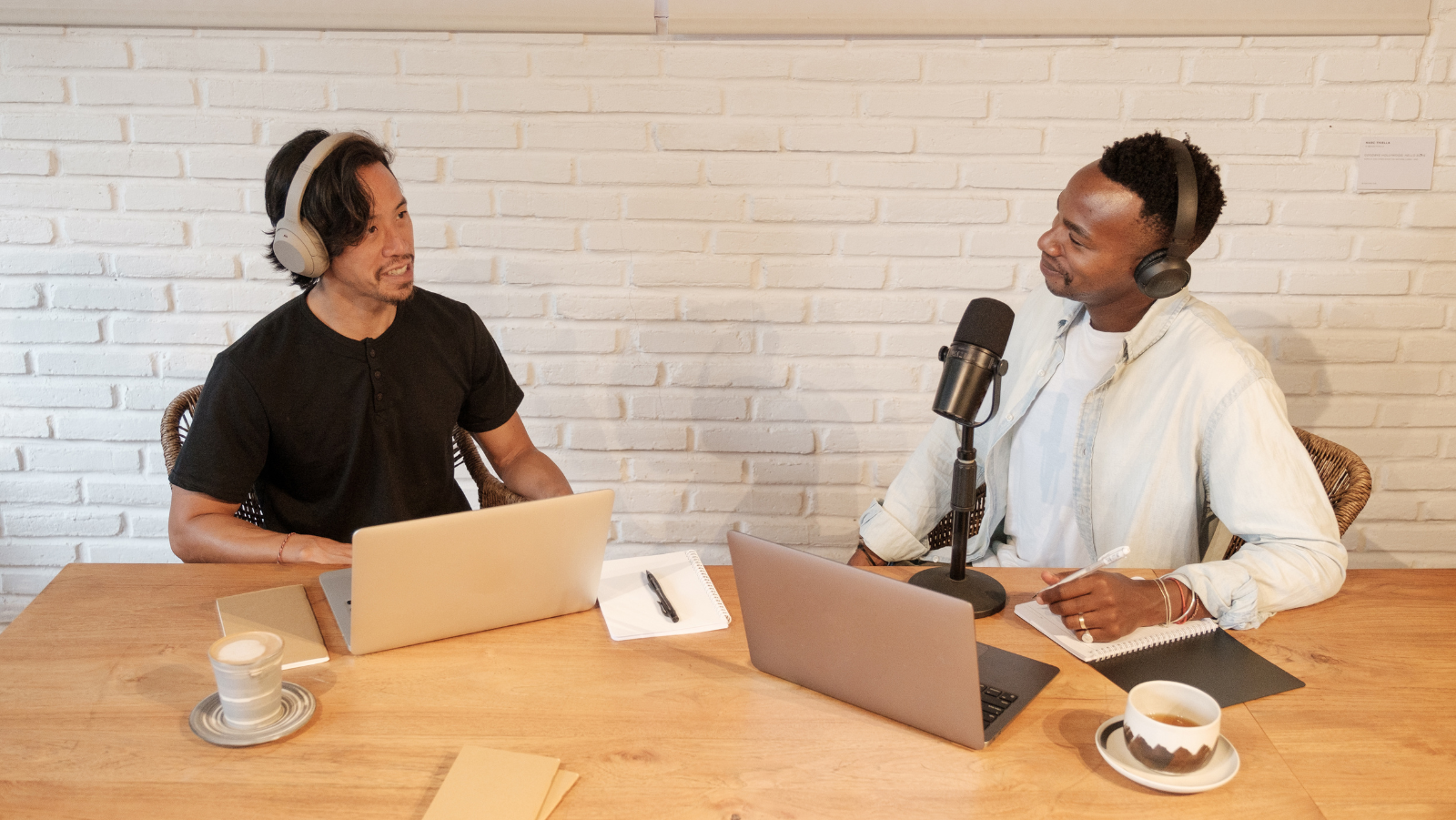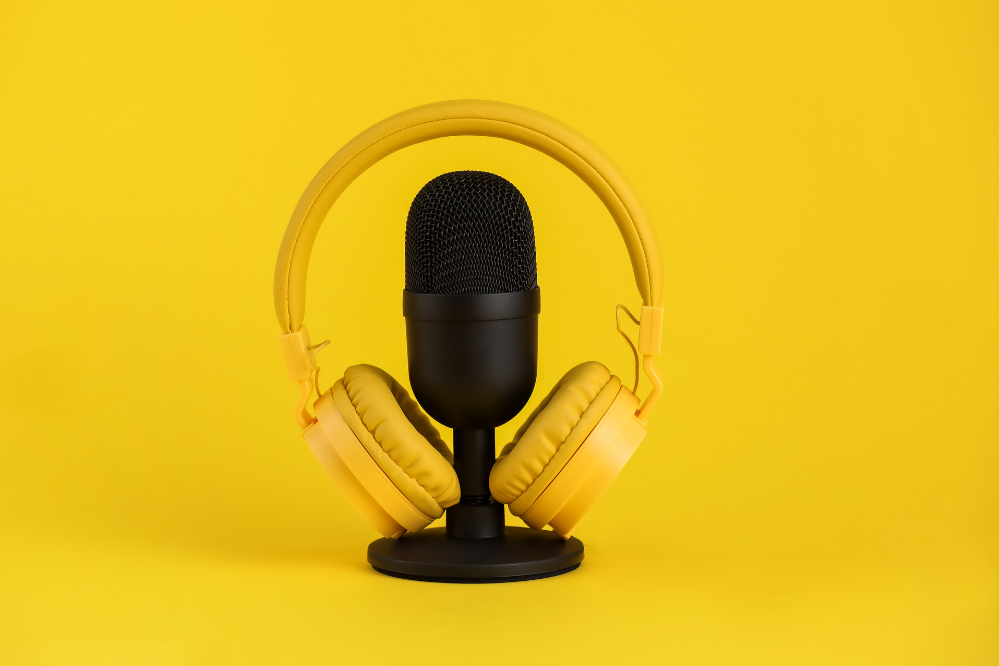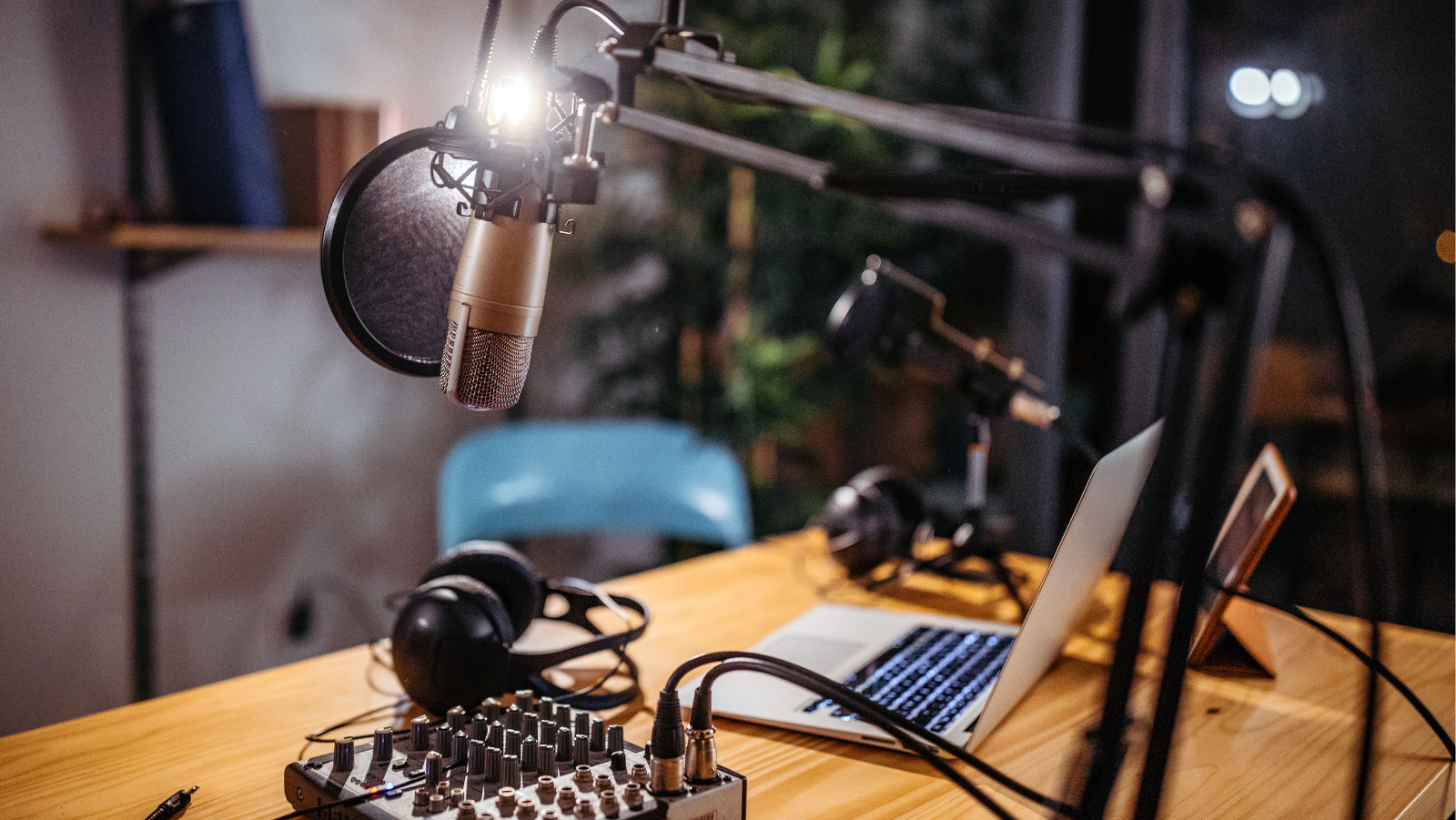How to Be A Good Podcast Host: Tips and Tricks For a Great Show
When it comes to podcasting, the role of the host is essential. A great podcast host will keep the show on track, ensure that each episode is well-organized, and keep the conversation flowing. They will also be able to bring out the best in their guests and create a rapport that makes the show more enjoyable for listeners. In addition to these important skills, a podcast host also needs to be a good communicator and an engaging storyteller.
This combination of skills will ensure that your podcast stands out from the rest and keeps listeners coming back for more. So if you're thinking about starting a podcast, be sure to put some thought into becoming a great podcast host. It could make all the difference in the success of your show.
1 What Makes a Great Podcast Host?
A successful podcast is more than just a couple of people chatting into a microphone. It takes careful planning, engaging content, and captivating delivery to produce a podcast that keeps listeners coming back for more. So, what makes a great podcast host?
First and foremost, a successful podcast host is a good storyteller. They are able to take complex topics and break them down into bite-sized pieces that are easy for listeners to follow.
Additionally, they are able to keep their episodes focused and on-topic, ensuring that listeners stay engaged from start to finish. Lastly, a great podcast host has a voice that is pleasant to listen to and an engaging personality that makes the show enjoyable to tune in to.
By possessing these key qualities, a successful podcast host can create a show that keeps listeners coming back for more.
2 10 Tips and Tricks for Being a Good Podcast Host

With the following amazing tips, you can change your normal podcast into a fantastic one!
1. Be engaging
Your listeners want to be engaged. They want to feel like you’re talking to them, not just reading from a script. Talk to them like you would talk to a friend. Ask them questions, and get them involved in the conversation.
2. Be prepared
You should always be prepared for your podcast episodes. That means having a clear idea of what you’re going to talk about and what your listeners want to hear. It also means having all of your materials ready to go before you start recording.
3. Be professional
While you don’t need to be stiff or formal, you do need to be professional. This means being respectful of your listeners’ time and attention span. Don’t ramble on tangents or play audio clips that are too long. Be sure to edit out any dead air or mistakes.
4. Be entertaining
Your listeners should enjoy listening to your podcast. That means you need to be entertaining. This doesn’t mean you need to be a comedian, but you should keep things lively and interesting. Use humor, stories, and sound effects to keep things moving.
5. Be consistent
Your listeners will appreciate it if you’re consistent with your podcast episodes.That means releasing new episodes on a regular schedule. It also means having a consistent format and style from episode to episode. listeners will become familiar with what they can expect from your podcast and will be more likely to stick around if it’s reliable.
6. Be flexible
While it’s important to be consistent, you also need to be flexible. This means being willing to change things up if something’s not working. Maybe you need to switch up the format or topics you’re covering. Maybe you need to find new ways to engage your listeners. Whatever it is, don’t be afraid to experiment.
7. Be responsive
Your listeners want to feel like they’re being heard. That means you need to be responsive to their feedback. If they have suggestions or critiques, take them seriously and try to incorporate them into your show.
8. Be grateful
Your listeners are taking the time out of their day to listen to your podcast. That’s pretty amazing! Be sure to express your gratitude for their attention. A simple “thank you” at the beginning or end of each episode will do.
9. Be yourself
Your listeners want to get to know you. So be yourself! Let your personality shine through in your podcast. This doesn’t mean you need to share every intimate detail of your life, but listeners should feel like they have a good sense of who you are as a person.
10. Have fun!
Remember, this is supposed to be fun! If you’re not enjoying it, your listeners definitely won’t be either. So find ways to make recording and editing your podcast enjoyable for you. Maybe that means listening to music while you work or taking breaks to stretch your legs. Whatever it is, make sure you’re having fun with it. podcasting is a great way to connect with listeners and share your passions. But it’s also a lot of work.
By following these tips, you can be sure you’re doing everything you can to be a good podcast host.
3 The do's and don'ts of podcast hosting: what makes a good host?
Hosting a successful podcast takes more than just hitting the record and starting talking. Good hosting skills are key to keeping listeners engaged and coming back for more. What makes a good host? First, you need to be prepared with talking points that will guide the conversation flow. You also need to be aware of your guests and their needs – what will they benefit from sharing on your show? Make sure to ask questions that invite them to open up and share their story in an interesting way.
Finally, don’t forget the show notes! Your listeners will appreciate having a written transcript or summary of the episode, complete with any links or resources that were mentioned. By following these simple tips, you can make sure your podcast is professional and enjoyable for both you and your listeners.
The don’ts of podcast hosting
Podcast hosting can be a great way to build an audience and share your ideas with the world. However, there are a few things you should avoid if you want to be a successful podcast host. First, try not to talk over your guests or interrupt them mid-sentence. This will only serve to frustrate your listeners and make it difficult for them to follow the conversation.
Second, avoid rambling on tangents or going off on long tangents that have nothing to do with the topic at hand. This will again make it difficult for listeners to stay engaged and could cause them to tune out entirely.
Finally, try to keep your episodes focused and concise. rambling on for too long will only lose listeners’ attention and make it more likely that they’ll unsubscribe from your podcast.
By following these simple tips, you can ensure that you’ll be a successful podcast host who keeps listeners coming back for more.
4 From planning to execution: how to flawlessly host a podcast

So you want to be a podcast host? Congratulations! podcasts are one of the most popular and effective ways to reach an audience, and they’re only getting more and more popular. But being a great podcast host isn’t as easy as it sounds. It takes planning, preparation, and a whole lot of hard work.
But don’t worry, we’re here to help. Here are our top tips and tricks for being a great podcast host:
1. Plan, plan, plan: the key to any great podcast is planning. You need to know who your guests are going to be, what topics you’re going to cover, and how you want the overall show to sound. This may seem like a lot of work, but trust us, it’s worth it.
2. Be prepared: once you have your plan, it’s time to start preparing for the show. This means doing your research, coming up with questions, and making sure you have everything you need in order to make the show a success.
3. Be professional: this may seem like a no-brainer, but it’s important to remember that you’re representing your brand (and yourself) when you’re hosting a podcast. This means being respectful of your guests, staying on topic, and avoiding anything that could be considered offensive.
4. Engage with your audience: a great podcast is more than just two people talking into a microphone. It’s about engaging with your audience and making them feel like they’re part of the conversation. So make sure to interact with listeners, take questions from social media, and generally just keep things lively.
5 How to engage your audience and be a good podcast
A great podcast host is someone who can engage their audience and make them feel like they’re part of the conversation.
A good way to do this is to ask questions and encourage your listeners to call in or leave comments. You should also be a good listener yourself so that you can respond to what your audience is saying.
Another way to engage your audience is to have interesting guests on your show. This will give people something to talk about and help them feel more connected to the show. Finally, it’s important to be accessible to your audience members.
Make sure you have an easily accessible website and social media accounts so that people can easily find and connect with you. By following these tips, you can ensure that you’ll be a great podcast host who engages their audience and keeps them coming back for more.
6 Podcast for personal stories
Podcasts are a great way to hear personal stories from people all over the world. They provide an intimate look into the lives of their guests, and the best ones are hosted by great storytellers who know how to draw out their guest’s best anecdotes.
Podcast listeners get to feel like they’re a part of the conversation, and they often form strong connections with the guests. This format is perfect for personal stories because it allows the listener to feel as though they are hearing the story directly from the source. When done well, podcasts can be an incredibly powerful medium for personal storytelling.
7 What is the pre-interview process in podcasting? How to conduct it
Any good interviewer will tell you that the pre-interview process is just as important as the actual interview itself. This is the time when you get to know your guest and establish a rapport. And while it may be tempting to simply fire off a list of questions, it’s important to remember that the pre-interview is also an opportunity to learn more about your guest’s story.
The best way to approach the pre-interview is to treat it like a casual conversation. Ask your guest about their background and what led them to their current work. Listen carefully and ask follow-up questions. Remember, the goal is to get to know your guest on a personal level and to establish the same level of energy that you’ll carry into the actual interview.
By taking the time to prepare, you’ll be able to conduct a pre-interview that will set the tone for a successful podcast episode.
8 How to pick the right topics for your podcast
It is extremely important to choose the right topics for your podcast. Not only you should pick topics that you are passionate about, but you should also make sure that those topics are interesting and engaging to your audience. To help you choose the right topics for your podcast, here are a few sample open-ended questions to ask yourself:
-What is my podcast about?
-Who is my target audience?
-What topics would be of interest to my target audience?
-What do I want my audience to take away from my podcast?
Once you have answers to these questions, you can start narrowing down your topic choices. Stay focused on choosing topics that make sense for your podcast and that will resonate with your audience. And don’t forget to have fun! After all, podcasts are meant to be enjoyed by both you and your listeners.
9 How to ensure your podcast is quality audio

A lot of people think that the key to a quality podcast is expensive equipment and a professional recording studio.
However, while having access to good quality equipment can certainly help, it isn’t the be-all and end-all of podcasting. In fact, with a little post-production work, you can produce a podcast that sounds just as good (if not better) than one recorded in a studio. The first step is to choose the right microphone. If you’re recording on your own, then a USB microphone is a good option.
For interviews, you’ll need something more sensitive, like a shotgun microphone. Once you’ve got your microphone sorted, it’s time to start recording. When you’re happy with your recording, it’s time to start post-processing. This involves using software to remove any background noise, correct any errors, and generally clean up the audio.
With a bit of time and effort, you can produce a podcast that sounds professional and polished – even if you’re not recording in a studio.
10 Tips and tricks for editing your podcast
Post-production process is one of the most important aspects of creating a good podcast. This is when you go through and edit your audio, add music and sound effects, and generally polish up the production values. The post-production process can be time-consuming, but it’s worth it to make sure your podcast sounds professional.
Here are some tips for post-production:
– Listen to your audio carefully and make note of any errors or awkward phrasing.
– If possible, create a transcript of your audio so that you can more easily edit it.
– Use software like Audacity to digitally edit your audio, removing unwanted noise and adding in music and sound effects.
– Practice makes perfect! The more you edit, the better you’ll get at it.
With these tips in mind, you’re well on your way to becoming a great podcast host! Keep up the good work and happy podcasting!
11 What should be the recording process of podcast?
There’s no one “right” way to record a podcast. However, there are some recording methods that tend to produce higher-quality audio than others.
In general, it’s best to avoid recording in noisy places, like coffee shops or busy streets. Instead, try to find a quiet room with good acoustics. Many podcasters also use pop filters and windscreens to reduce background noise and pops from plosives (strong consonants like “p” and “b”).
If you’re recording with multiple people, it’s important to use a good microphone that can pick up all voices clearly. You may also want to invest in a digital recorder so you can edit the audio later if needed. As you get more experience recording podcasts, you’ll likely find ways to improve your setup and recording process. There are great examples of well-produced podcasts out there, so don’t be afraid to strive for constant improvement.
Just remember that the most important thing is to create a podcast that sounds friendly and inviting – like you’re having a chat with a friend.
12 Conclusion: The Benefits of Being a Good Podcast Host
A recent survey found that podcast hosting is a great way to improve your communication skills. The survey found that podcast hosts who are good at communicating are constantly improving and that they often set great examples for their listeners. In addition, the survey found that podcast hosts who are friendly and easy to talk to tend to be more successful than those who are not.










